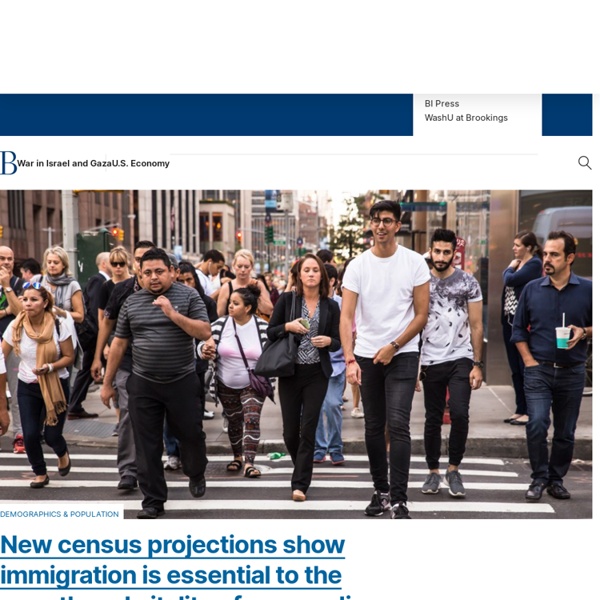



Strengthening democracy through private enterprise and market oriented reform Sparking Debate on Economic Policy in Nepal Samriddhi wins an award at the Asia Liberty Forum in Kuala Lumpur. By Sarita Sapkota, Samriddhi Free Online Courses - Open Education Database Written by: Thomas Broderick Universities, colleges, and private organizations offer free online college courses to help students acquire new knowledge and skills. These courses cover a variety of traditional academic topics and other subjects that can lead to career advancement and personal enrichment. Courses occur online, allowing learners from all over the world to participate. At the end of a course, students may qualify for an official certificate.
What is CIDE? Office of International Academic Affairs CIDE is one of Mexico’s most important centers of teaching and research in the social sciences. Recognized both nationally and internationally, CIDE has been a non-profit public institution since its establishment in Mexico City in 1974. Part of the network of highly specialized public centers for research and higher education coordinated by the National Council of Science and Technology (Conacyt), CIDE is fully committed to contributing to the development of Mexico through its demanding academic programs; rigorous, relevant research; and links to the public, private, social, and academic sectors. Intellectual independence and rigor, respect for plurality, a sense of equity, and a constant effort to balance a scientific approach to research with social relevance are behind CIDE’s successful search for excellence. CIDE has six academic divisions: Economics, Public Administration, International Studies, Political Studies, Legal Studies, and History.
Identifying and Regulating Systemically Important Financial Institutions: The Risks of Under and Over Identification and Regulation Certain financial institutions are so central to the American financial system that their failure could cause traumatic damage, both to financial markets and to the larger economy. These institutions are often referred to as “systemically important financial institutions” or SIFIs. Among its numerous provisions, the Dodd-Frank Act, the comprehensive reform legislation signed into law during the summer of 2010, requires financial regulators belonging to the Financial Stability Oversight Committee (FSOC) [1] to designate those financial institutions that are systemically important.[2] Such SIFIs are to be supervised more closely and potentially required to operate with greater safety margins, such as higher levels of capital, and to face further limitations on their activities. This policy brief is intended to assist the Fed and the FSOC with this difficult task. 1. 2.
WordPress.com Search All public blogs hosted by WordPress.com are indexed and can be searched via By default search results are ordered by relevance, with the option to sort by date. The WordPress.com search engine indexes only the body text of posts, pages, and comments content. Searches for keywords found only in the blog name, post titles, and post/comment author names will not appear unless they are also contained in the body text. Search Syntax The search engine at has a few options to refine your search criteria: site: This limits the search results to a specific WordPress.com blog.
Center for Nanotechnology in Society at Arizona State University (CNS-ASU) The Virtual Institute for Responsible Innovation (VIRI) was created to accelerate the formation of a community of scholars and practitioners who, despite divides in geography and political culture, will create a common concept of responsible innovation for research, training and outreach – and in doing so contribute to the governance of emerging technologies under conditions dominated by high uncertainty, high stakes, and challenging questions of novelty. “Responsible innovation” (RI) is an emerging term in science and innovation policy fields across the globe. Its precise definition has been at the center of numerous meetings, research council decisions, and other activities in recent years. But today there is neither a clear, unified vision of what responsible innovation is, what it requires in order to be effective, nor what it can accomplish. Representatives from VIRI Network Member Institutions, Summer Meeting 2015 Mission
The Top 100 Twitter Tools of 2012 (Categorized) This post is #9 in DailyTekk’s famous Top 100 series which explores the best startups, gadgets, apps, websites and services in a given category. Total items listed: 115. Time to compile: 8+ hours. Follow @DailyTekk on Twitter to make sure you don’t miss a week! Twitter is my social network of choice (see our recent article: Inside Twitter). About the Center for Policy Alternatives Overview The Center for Public Policy Alternatives (CPPA) is an independent, non-partisan public policy think-tank committed to rigorous research through which public policies and processes are examined, supported and best practices disseminated. The CPPA aims to help sub-Saharan governments and their agencies realize the goal of rapid development and a prosperous future for their citizens. Mission To create a demand driven research organization dedicated to addressing issues affecting Nigeria in particular and sub-Saharan Africa in general. Vision To be quoted, referenced or engaged in 80% of all policy issues by 2014. Objectives CPPA aims to promote proactive research that is not limited to current affairs across a broad range of subjects and is independent of immediate or obvious demand with the hopeof: Strengthening the decision-making capacity of government by transmitting policy-relevant information derived from high quality research and analysis to policymakers.